Chapter 5 Quotes & Sayings
Enjoy reading and share 45 famous quotes about Chapter 5 with everyone.
Top Chapter 5 Quotes

I still look up sometimes when I cross the front of the house, expecting to see her. — Vanessa Diffenbaugh
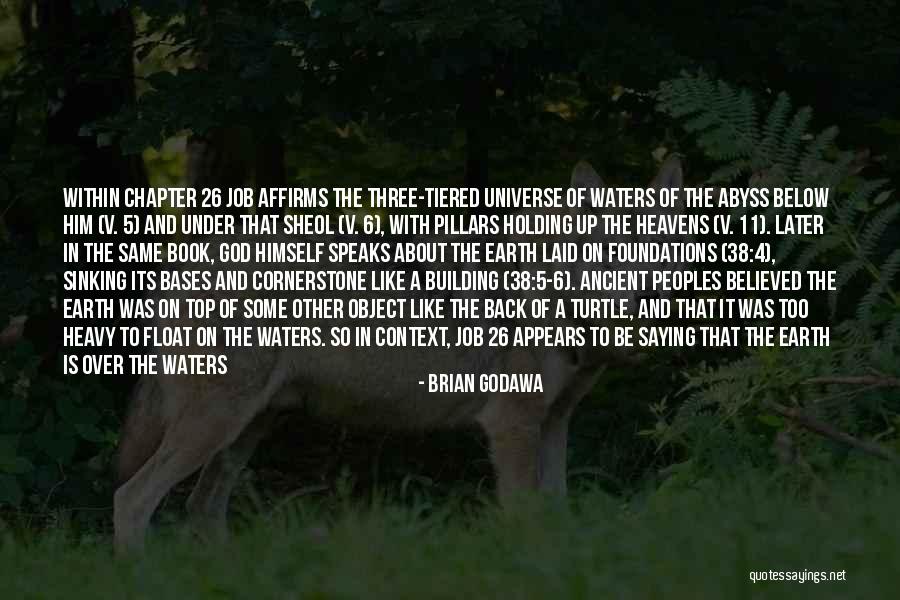
Within chapter 26 Job affirms the three-tiered universe of waters of the Abyss below him (v. 5) and under that Sheol (v. 6), with pillars holding up the heavens (v. 11). Later in the same book, God himself speaks about the earth laid on foundations (38:4), sinking its bases and cornerstone like a building (38:5-6). Ancient peoples believed the earth was on top of some other object like the back of a turtle, and that it was too heavy to float on the waters. So in context, Job 26 appears to be saying that the earth is over the waters of the abyss and Sheol, on its foundations, but there is nothing under those pillars but God himself holding it all up. This is not the suggestion of a planet hanging in space, but rather the negative claim of an earth that is not on top of an ancient object. — Brian Godawa

The Chinese sage Mencius made the analogy between morality and food 2,300 years ago when he wrote that "moral principles please our minds as beef and mutton and pork please our mouths."4 In this chapter and the next two, I'll develop the analogy that the righteous mind is like a tongue with six taste receptors. In this analogy, morality is like cuisine: it's a cultural construction, influenced by accidents of environment and history, but it's not so flexible that anything goes. You can't have a cuisine based on tree bark, nor can you have one based primarily on bitter tastes. Cuisines vary, but they all must please tongues equipped with the same five taste receptors.5 Moral matrices vary, but they all must please righteous minds equipped with the same six social receptors. — Jonathan Haidt
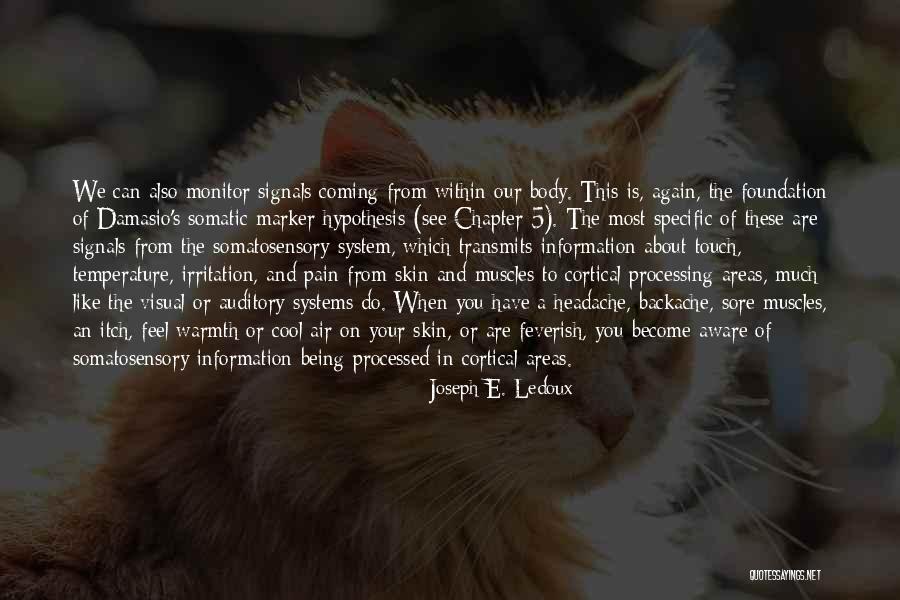
We can also monitor signals coming from within our body. This is, again, the foundation of Damasio's somatic marker hypothesis (see Chapter 5). The most specific of these are signals from the somatosensory system, which transmits information about touch, temperature, irritation, and pain from skin and muscles to cortical processing areas, much like the visual or auditory systems do. When you have a headache, backache, sore muscles, an itch, feel warmth or cool air on your skin, or are feverish, you become aware of somatosensory information being processed in cortical areas. — Joseph E. Ledoux

You can watch an episode of Friends or an episode of Law & Order and just drop in, but you're not going to in the middle of Season 4, Episode 5 of Lost. It's like picking up a Harry Potter book and flipping to a chapter. You have to read it from beginning to end. — Damon Lindelof

But you can't fault me on my footnotes. I've worked hard on them and they look pretty impressive. And almost all the sources I quote actually exist. I must confess, however, that the idea of putting footnotes in chapter 5, the autobiographical chapter, started out simply as a joke. Who but a biblical scholar would think of footnoting an autobiography? But the joke quickly got out of hand and become a significant part of that chapter. I plan someday to write a scholarly article consisting of a single sentence and a twenty-page footnote. — Jeffrey L. Staley
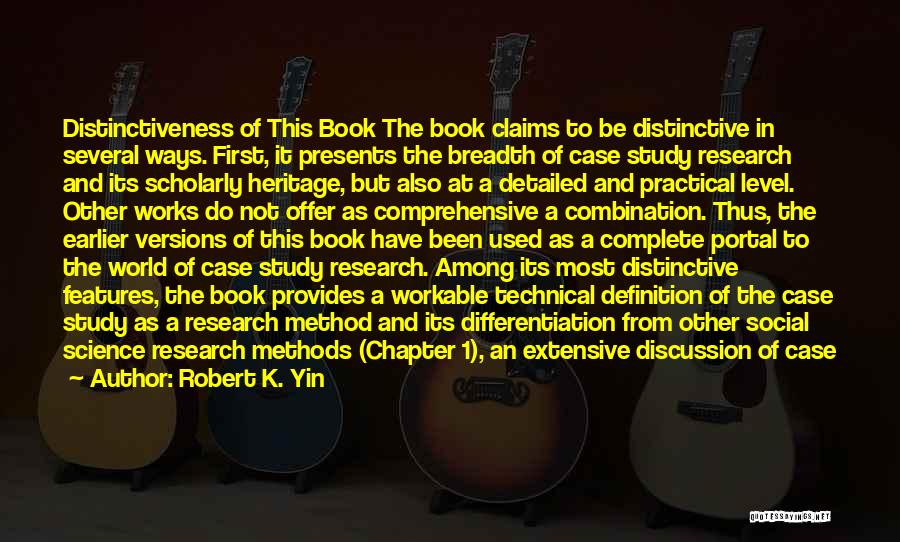
Distinctiveness of This Book The book claims to be distinctive in several ways. First, it presents the breadth of case study research and its scholarly heritage, but also at a detailed and practical level. Other works do not offer as comprehensive a combination. Thus, the earlier versions of this book have been used as a complete portal to the world of case study research. Among its most distinctive features, the book provides a workable technical definition of the case study as a research method and its differentiation from other social science research methods (Chapter 1), an extensive discussion of case study designs (Chapter 2), and a continually expanding presentation of case study analysis techniques (Chapter 5 — Robert K. Yin
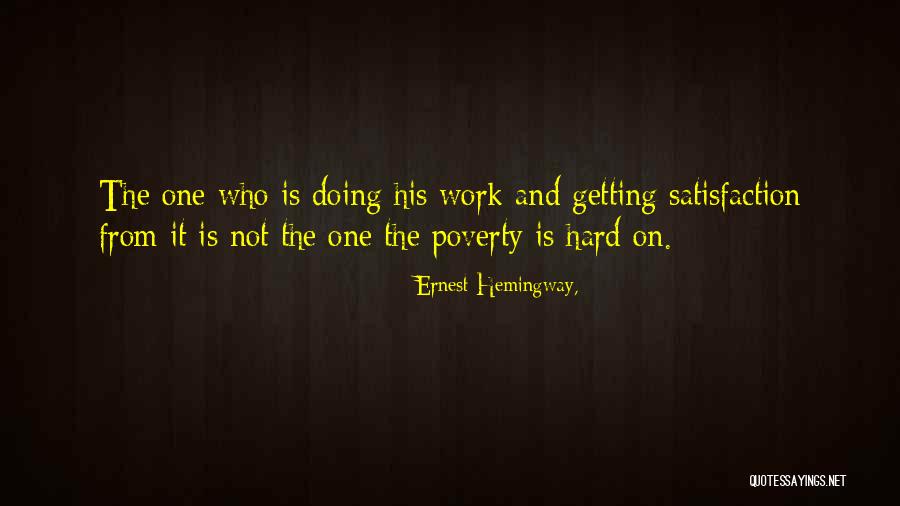
The one who is doing his work and getting satisfaction from it is not the one the poverty is hard on. — Ernest Hemingway,

We should bury the bodies," Sam said.
Gabriel shook her head. "We haven't got time. There are two hundred and sixty seven bodies here. Do you know how long that would take? — Phillip W. Simpson
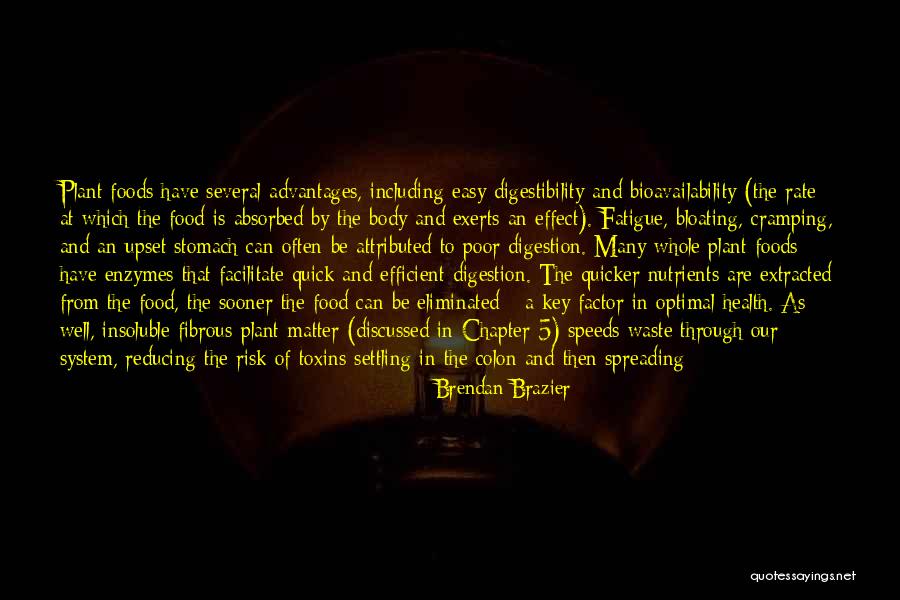
Plant foods have several advantages, including easy digestibility and bioavailability (the rate at which the food is absorbed by the body and exerts an effect). Fatigue, bloating, cramping, and an upset stomach can often be attributed to poor digestion. Many whole plant foods have enzymes that facilitate quick and efficient digestion. The quicker nutrients are extracted from the food, the sooner the food can be eliminated - a key factor in optimal health. As well, insoluble fibrous plant matter (discussed in Chapter 5) speeds waste through our system, reducing the risk of toxins settling in the colon and then spreading throughout the body. Enzyme-rich foods help ensure the body makes use of the nutrients in the food. — Brendan Brazier

And where are you going?"
"I dunno," said the Spangled Boy. "I'm running from, not to."
Book: Wet Magic, Chapter 5. — E. Nesbit
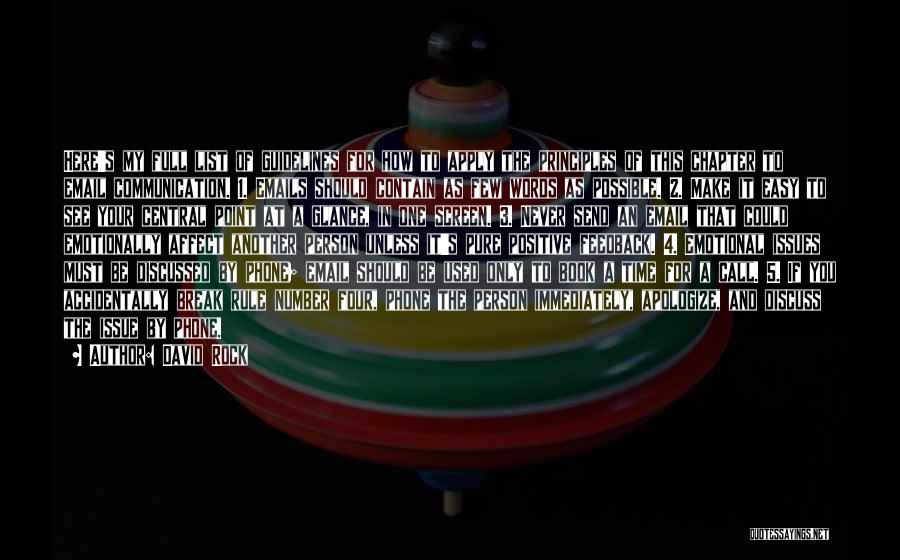
Here's my full list of guidelines for how to apply the principles of this chapter to email communication. 1. Emails should contain as few words as possible. 2. Make it easy to see your central point at a glance, in one screen. 3. Never send an email that could emotionally affect another person unless it's pure positive feedback. 4. Emotional issues must be discussed by phone; email should be used only to book a time for a call. 5. If you accidentally break rule number four, phone the person immediately, apologize, and discuss the issue by phone. — David Rock

The slight nausea he was feeling must be somewhat neat what God was feeling every minute of every day. If indeed He felt anything. He was, after all, a divine being, and it was entirely conceivable that divinity was incompatible with emotion. If not, then the Maestro sincerely pitied God, for hte history of mankind was nothing more than a long tale of tears. (From "Juliet" thought by The Maestro. Chapter 5) — Ann Fortier
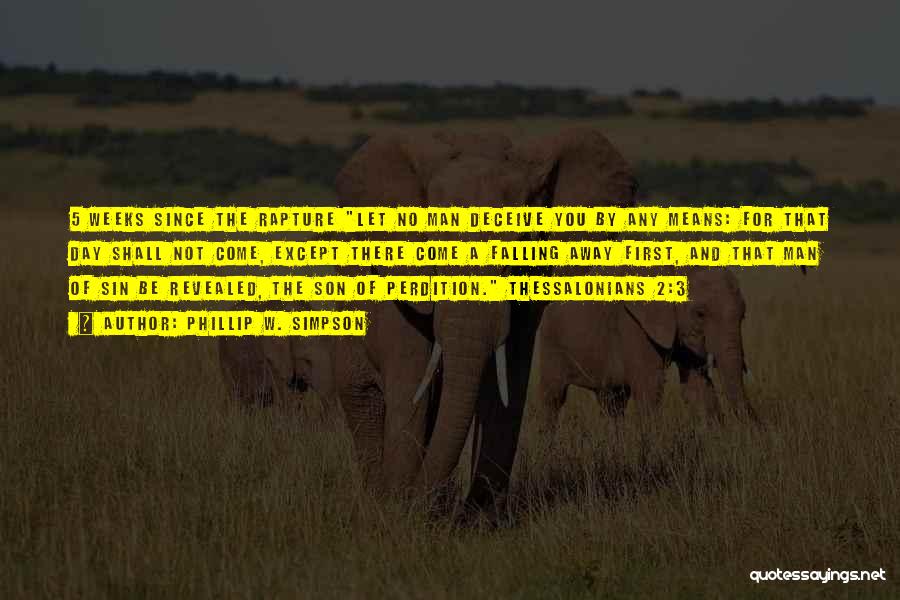
5 weeks since the Rapture "Let no man deceive you by any means: for that day shall not come, except there come a falling away first, and that man of sin be revealed, the son of perdition." Thessalonians 2:3 — Phillip W. Simpson
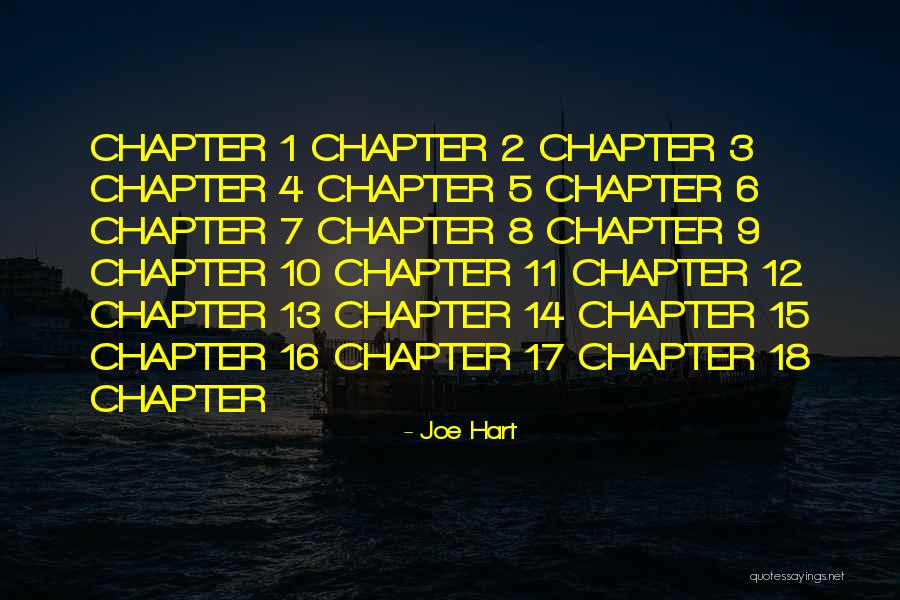
CHAPTER 1 CHAPTER 2 CHAPTER 3 CHAPTER 4 CHAPTER 5 CHAPTER 6 CHAPTER 7 CHAPTER 8 CHAPTER 9 CHAPTER 10 CHAPTER 11 CHAPTER 12 CHAPTER 13 CHAPTER 14 CHAPTER 15 CHAPTER 16 CHAPTER 17 CHAPTER 18 CHAPTER — Joe Hart
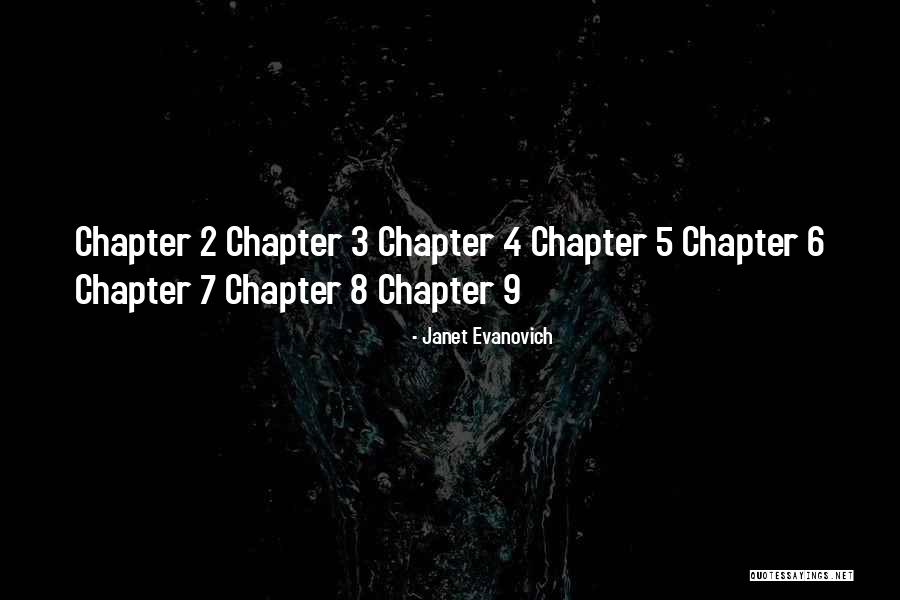
Chapter 2 Chapter 3 Chapter 4 Chapter 5 Chapter 6 Chapter 7 Chapter 8 Chapter 9 — Janet Evanovich

In Chapter 5 we consider swindles and defalcations. It happens that crashes and panics often are precipitated by the revelation of some misfeasance, malfeasance, or malversation (the corruption of officials) engendered during the mania. It seems clear from the historical record that swindles are a response to the greedy appetite for wealth stimulated by the boom. And as the monetary system gets stretched, institutions lose liquidity, and unsuccessful swindles are about to be revealed, the temptation to take the money and run becomes virtually irresistible. It is difficult to write on this subject without permitting the typewriter to drip with irony. An attempt will be made. — Charles P. Kindleberger

Hyacinth. Please forgive me. — Vanessa Diffenbaugh

You should be more careful," said Josh with a crooked grin, the barrel of his gun still smoking. "It's dangerous around here. You could get hurt."
Sam grinned back savagely. "I'll try to remember. — Phillip W. Simpson
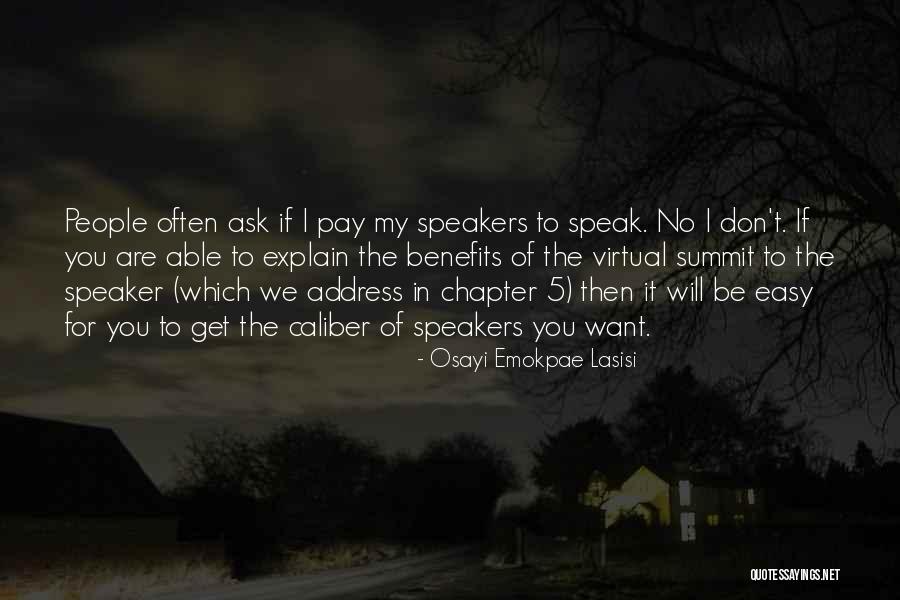
People often ask if I pay my speakers to speak. No I don't. If you are able to explain the benefits of the virtual summit to the speaker (which we address in chapter 5) then it will be easy for you to get the caliber of speakers you want. — Osayi Emokpae Lasisi

Chapter 5.2: Generic Fonts - Sans -Serif Setting font properties will be among the most common uses of style sheets. Unfortunately, there exists no well-defined and universally accepted taxonomy for — Anonymous

Apology accepted. Everyone makes mistakes. You are part-human after all. — Phillip W. Simpson
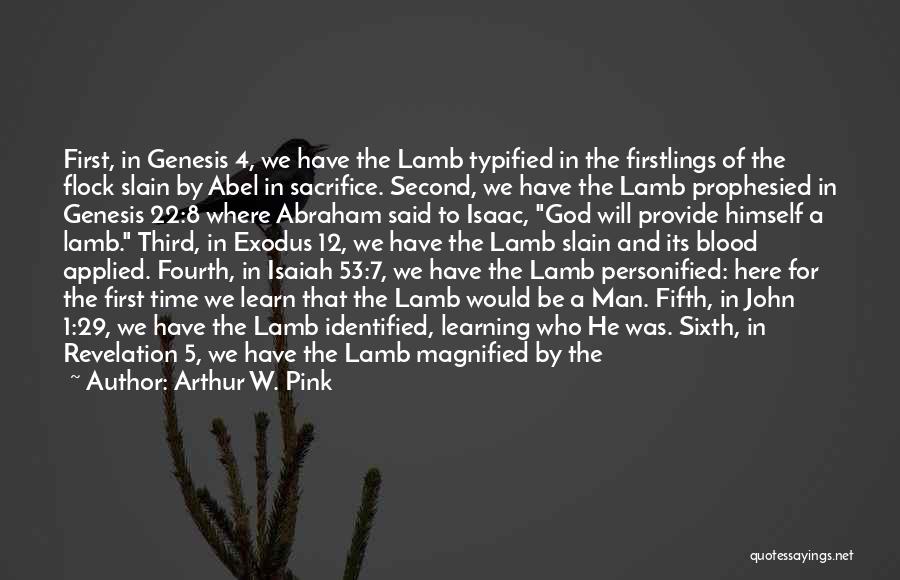
First, in Genesis 4, we have the Lamb typified in the firstlings of the flock slain by Abel in sacrifice. Second, we have the Lamb prophesied in Genesis 22:8 where Abraham said to Isaac, "God will provide himself a lamb." Third, in Exodus 12, we have the Lamb slain and its blood applied. Fourth, in Isaiah 53:7, we have the Lamb personified: here for the first time we learn that the Lamb would be a Man. Fifth, in John 1:29, we have the Lamb identified, learning who He was. Sixth, in Revelation 5, we have the Lamb magnified by the hosts of heaven. Seventh, in the last chapter of the Bible we have the Lamb glorified, seated upon the eternal throne of God, Revelation — Arthur W. Pink

Lying is second nature and I do it very well. Titus Ray, Chapter 5 — Luana Ehrlich
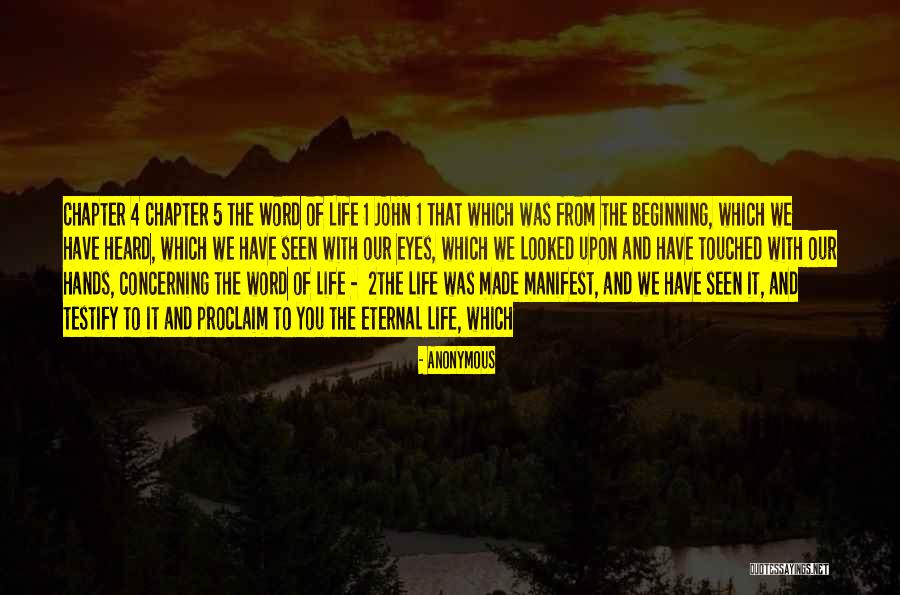
Chapter 4 Chapter 5 The Word of Life 1 JOHN 1 That which was from the beginning, which we have heard, which we have seen with our eyes, which we looked upon and have touched with our hands, concerning the word of life - 2the life was made manifest, and we have seen it, and testify to it and proclaim to you the eternal life, which — Anonymous
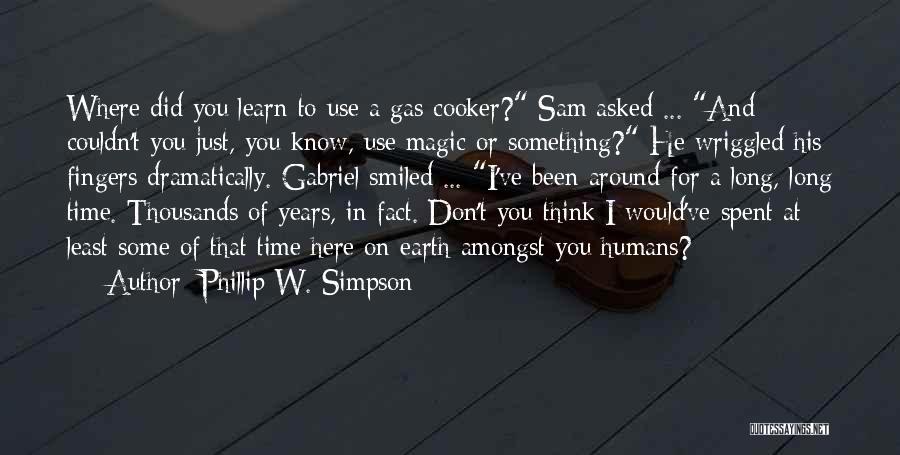
Where did you learn to use a gas cooker?" Sam asked ... "And couldn't you just, you know, use magic or something?" He wriggled his fingers dramatically.
Gabriel smiled ... "I've been around for a long, long time. Thousands of years, in fact. Don't you think I would've spent at least some of that time here on earth amongst you humans? — Phillip W. Simpson

Volume II: Chapter 5
The God sends down his angry plagues from high,
Famine and pestilence in heaps they die.
Again in vengeance of his wrath he falls
On their great hosts, and breaks their tottering walls;
Arrests their navies on the ocean's plain,
And whelms their strength with mountains of the main. — Mary Shelley

When the first book out my sister-in-law read it and we were chatting at 5 o'clock in the afternoon and she said, "Oh my God, chapter six, sex and a murder," and her five year old wandered into the kitchen and said, "Sixty hamburgers? — Sara Sheridan

Dedication Chapter 1 - Introduction Chapter 2 - Pray and Live Chapter 3 - At the Threshold of God's Time Chapter 4 - Where God Dwells Chapter 5 - All the Trees of the Forest Sing for Joy Chapter 6 - At Home in the Psalms Afterword - My Life with the Psalms Acknowledgments Scripture Index About the Author Also by N. T. Wright Credits Copyright About the Publisher Chapter 1 — N. T. Wright
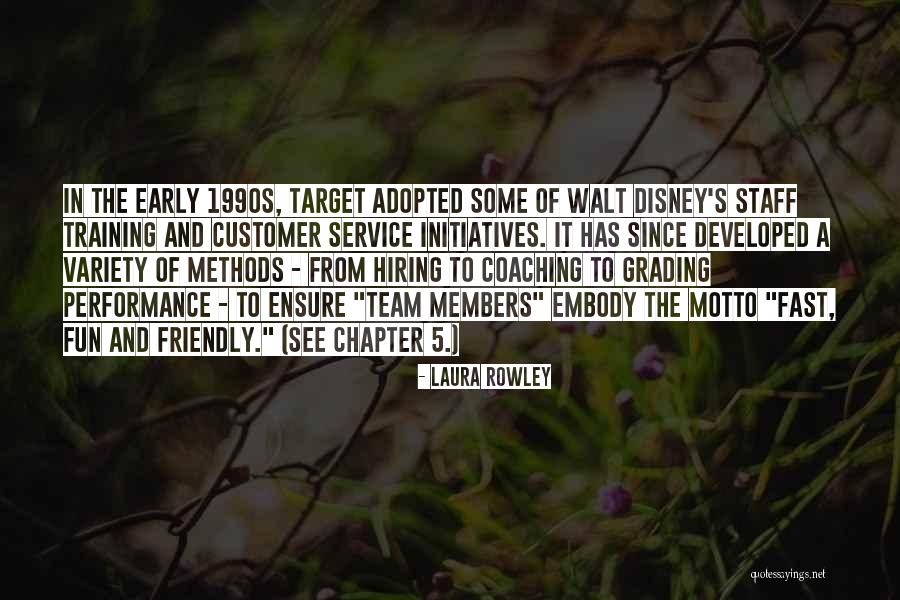
In the early 1990s, Target adopted some of Walt Disney's staff training and customer service initiatives. It has since developed a variety of methods - from hiring to coaching to grading performance - to ensure "team members" embody the motto "fast, fun and friendly." (See Chapter 5.) — Laura Rowley

While I cannot prevent the birds from flying over my head, I can prevent them from making a nest in my hair. - Chapter 5 My Cinderella — Santosh Avvannavar

Tables of Contents Introduction Chapter 1 Bonjour, France! Chapter 2 Numbers and Gender Chapter 3 Plural Forms of Nouns Chapter 4 Pronouns Chapter 5 Verbs Chapter 6 Prepositions Chapter 7 Useful Expressions Preview Of'Spanish For Beginners' Check Out My Other Books Conclusion — Manuel De Cortes
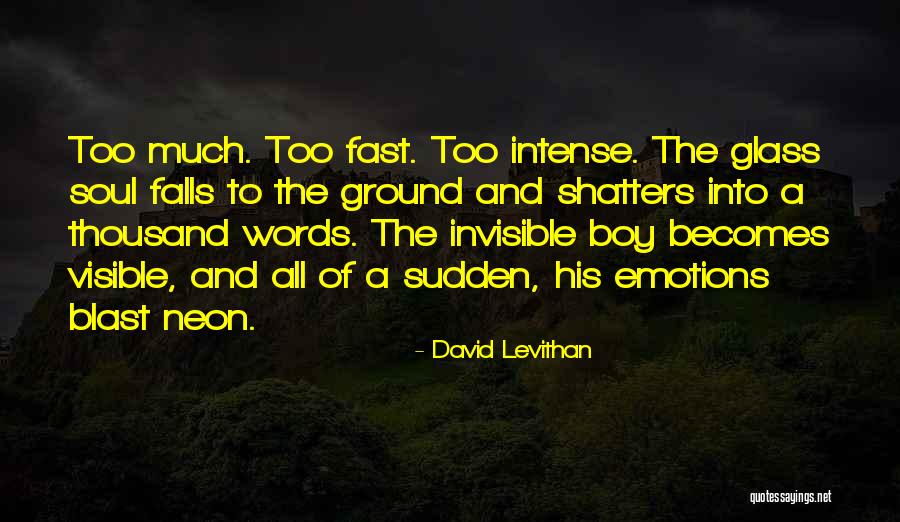
Too much. Too fast. Too intense. The glass soul falls to the ground and shatters into a thousand words. The invisible boy becomes visible, and all of a sudden, his emotions blast neon. — David Levithan
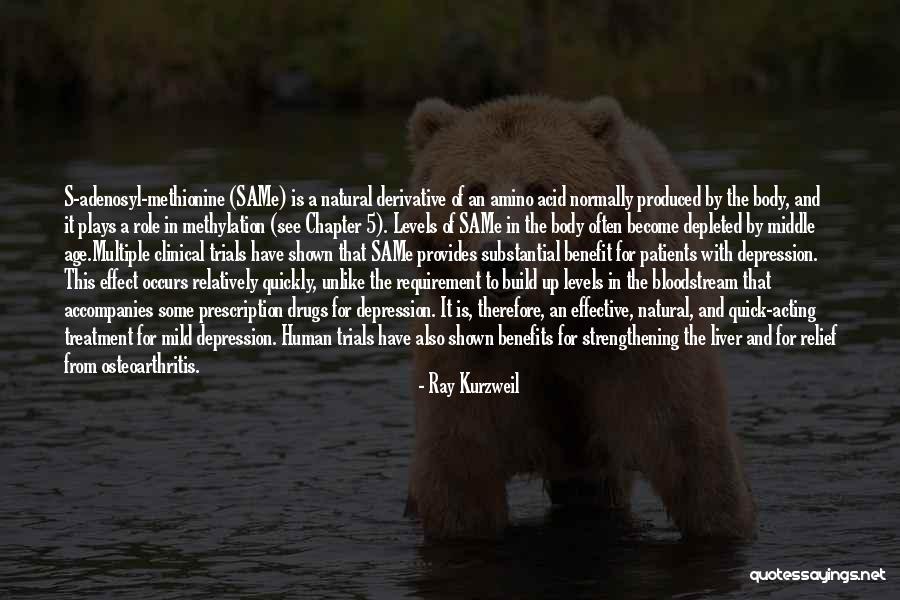
S-adenosyl-methionine (SAMe) is a natural derivative of an amino acid normally produced by the body, and it plays a role in methylation (see Chapter 5). Levels of SAMe in the body often become depleted by middle age.
Multiple clinical trials have shown that SAMe provides substantial benefit for patients with depression. This effect occurs relatively quickly, unlike the requirement to build up levels in the bloodstream that accompanies some prescription drugs for depression. It is, therefore, an effective, natural, and quick-acting treatment for mild depression. Human trials have also shown benefits for strengthening the liver and for relief from osteoarthritis. — Ray Kurzweil
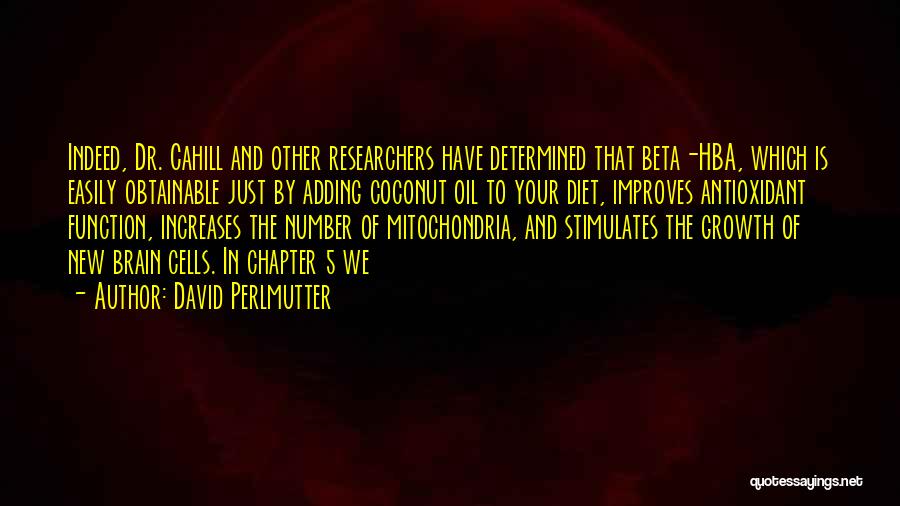
Indeed, Dr. Cahill and other researchers have determined that beta-HBA, which is easily obtainable just by adding coconut oil to your diet, improves antioxidant function, increases the number of mitochondria, and stimulates the growth of new brain cells. In chapter 5 we — David Perlmutter

Desrochers and Shimizu (Chapter 5) identify several shortcomings in Carson's Silent Spring that stem from major omissions. These include her silence on the benefits of chemical pesticides, such as higher agricultural production - which reduced hunger in a world of chronic starvation and limited the loss of wildlife habitat. Another flaw is her reliance on anecdotes rather than systematic analysis of available information. But perhaps the book's biggest failing is its discussion of cancer. — Roger E. Meiners

Learning grammar can be viewed as a game that a little boy plays with his father. Daddy talks, the boy listens - perhaps disobeys - and Daddy talks some more. All the while the boy is trying to figure out the grammar that can generate the sentences in Daddy's speech. The boy might occasionally talk back, but there is no guarantee that Daddy will pay any attention. Not that he is a bad father: recall from Chapter 5 that in some cultures, adults do not interact with children until they are socially and linguistically adept. To fully understand the game of language learning, then, Daddy can be assumed only as a rather passive participant. The goal of the game is to learn Daddy's grammar within some finite amount of time: nobody learns forever. — Charles Yang
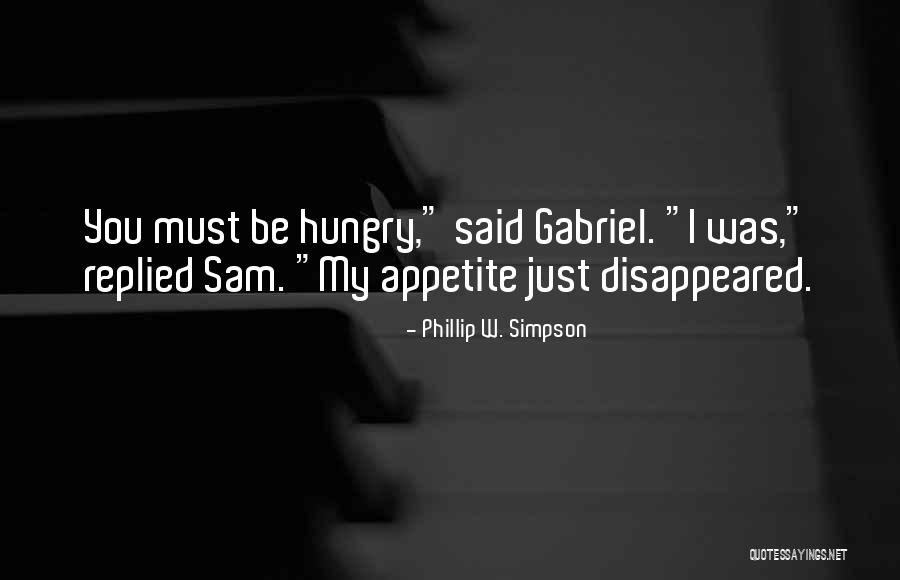
You must be hungry," said Gabriel. "I was," replied Sam. "My appetite just disappeared. — Phillip W. Simpson
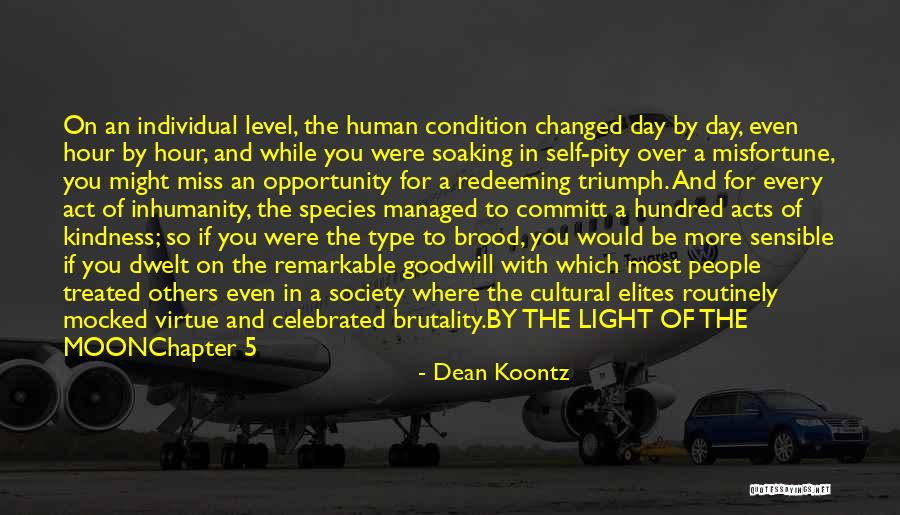
On an individual level, the human condition changed day by day, even hour by hour, and while you were soaking in self-pity over a misfortune, you might miss an opportunity for a redeeming triumph. And for every act of inhumanity, the species managed to committ a hundred acts of kindness; so if you were the type to brood, you would be more sensible if you dwelt on the remarkable goodwill with which most people treated others even in a society where the cultural elites routinely mocked virtue and celebrated brutality.
BY THE LIGHT OF THE MOON
Chapter 5 — Dean Koontz

Chapter 5-"Now THAT'S Leverage" discusses the idea of "software leverage," where reusing components results in greater impact. We see how the use of shell scripts achieves a high degree of leverage. — Mike Gancarz

The idea I'd been toying with fully formed in my mind.
"I'm plotting."
"oh?" His mouth curved in a wicked grin. "Do Tell."
Chapter 5 pg. 50 — Sylvia Day

6 weeks since the Rapture "Now this I say, brethren, that flesh and blood cannot inherit the kingdom of God; neither doth corruption inherit incorruption." Corinthians 15:50 — Phillip W. Simpson

If people are like plants, what are the conditions we need to flourish? In the happiness formula from chapter 5, H(appiness) = S(etpoint) + C(onditions) + V(oluntary activities), what exactly is C? The biggest part of C, as I said in chapter 6, is love. No man, woman, or child is an island. We are ultrasocial creatures, and we can't be happy without having friends and secure attachments to other people. The second most important part of C is having and pursuing the right goals, in order to create states of flow and engagement. In the modern world, people can find goals and flow in many settings, but most people find most of their flow at work. — Jonathan Haidt

Ladies and Gentlemen, I stand before you now because I never stopped dawdling like an eight-year-old on a spring morning on his way to school. Anything can make me stop and look and wonder, and sometimes learn. I am a very happy man. Thank you. - Dr. Hoenikker's Nobel Prize acceptance speech (in its entirety); chapter 5 — Kurt Vonnegut






